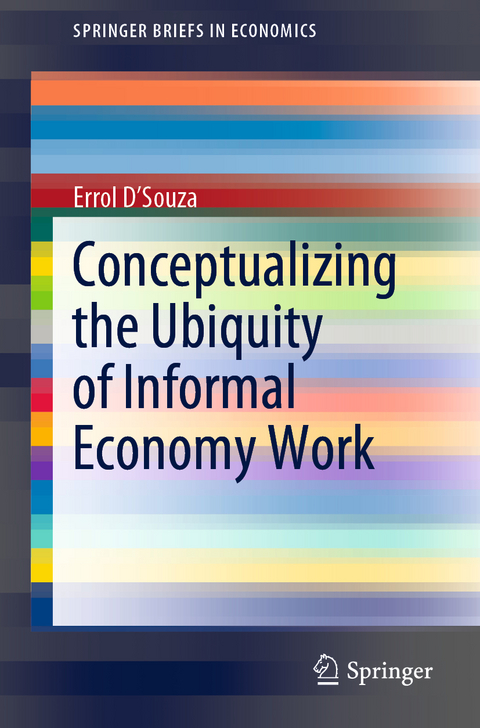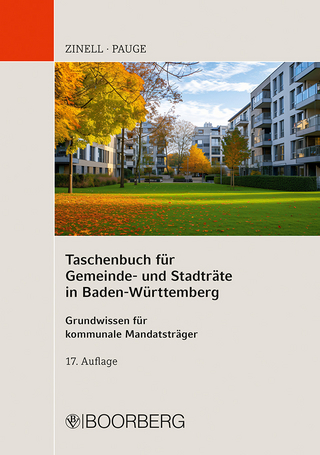
Conceptualizing the Ubiquity of Informal Economy Work
Springer Verlag, Singapore
978-981-15-7427-6 (ISBN)
Another striking feature of such economies which the book engages with is that, as they have liberalized, informal employment in the registered enterprises or formal part of the economy has grown. The informal sector has been analyzed by recourse to two major approaches. One is a public economics framework that underlines how informal enterprises evolve asthey trade-off reduced access to public services such as contract enforcement with the payment of taxes and regulatory compliances. This book extends this literature by focusing on the access to formal sector credit and its potential for financing productive enterprises as a factor that is considered when an enterprise contemplates whether to incorporate or not.
The second leg of the literature takes a labour perspective and emphasizes mandated labour costs such as hiring and firing costs, benefits, and minimum wages as considerations when deciding on whether to engage labour on a formal or informal basis. The book broadens this literature by taking into account how the human capital of workers and the monitoring costs of ensuring that workers are adhering to the terms of negotiated contracts inform the decision with regard to informality. The book will resonate with those academics and policy makers who are engaged with the conundrums of development.
Errol D’Souza is Professor of Economics and Director, Indian Institute of Management Ahmedabad. He obtained his Ph.D. as a University Grants Commission National Research Fellow from the Jawaharlal Nehru University, New Delhi. He has held appointments such as the IFCI Chair Professor at the University of Mumbai, India Chair Professor at the University Sciences Po in Paris, as a Visiting Professor of the Indian Institute of Advanced Study, Shimla, as an Honorary Senior Fellow of the Institute of South Asian Studies at the National University of Singapore, a Visiting Scholar at Columbia University, and as a Visiting Professor at the Turin School of Development of the ILO. He has worked on academic committees of the University Grants Commission and the Indian Council of Social Science Research, and has been associated with the Planning Commission of India and the Reserve Bank of India in various capacities, including as a Member, Technical Advisory Committee on Monetary Policy. He has served on the Academic Councils of the Tata Institute of Social Sciences, Indira Gandhi Institute of Development Research, the Institute for Human Development, Delhi, and is on the Advisory Board of the International Centre for Development and Decent Work at Kassel, Germany, and the Boards of the National Institute of Public Finance and Policy, and India Gold Policy Centre. Professor D’Souza is on the editorial board of the Journal of Quantitative Economics (Springer), the Indian Journal of Labour Economics (Springer). His areas of research interest are macroeconomics, development finance and public policy.
Chapter 1: When will formality become the norm?.- Chapter 2: Self-employment and Human Capital.- Chapter 3: Informal and Formal Employment in a Liberalizing Economy.- Chapter 4: Migrants and Informal Casual Labour Markets.- Chapter 5: Wage Disparity and Human Capital Accumulation.- Chapter 6: The Pervasiveness of Self-employment.- Chapter 7: Secure Livelihoods.
| Erscheinungsdatum | 28.08.2020 |
|---|---|
| Reihe/Serie | SpringerBriefs in Economics |
| Zusatzinfo | 10 Illustrations, color; 6 Illustrations, black and white; XIX, 86 p. 16 illus., 10 illus. in color. |
| Verlagsort | Singapore |
| Sprache | englisch |
| Maße | 155 x 235 mm |
| Themenwelt | Sozialwissenschaften ► Politik / Verwaltung ► Staat / Verwaltung |
| Wirtschaft ► Volkswirtschaftslehre ► Makroökonomie | |
| Wirtschaft ► Volkswirtschaftslehre ► Wirtschaftspolitik | |
| Schlagworte | formal employment • Human Capital • Informal Casual Labour Markets • informal employment • Secure Livelihoods • Self-Employment • Wage Disparity |
| ISBN-10 | 981-15-7427-8 / 9811574278 |
| ISBN-13 | 978-981-15-7427-6 / 9789811574276 |
| Zustand | Neuware |
| Haben Sie eine Frage zum Produkt? |
aus dem Bereich


